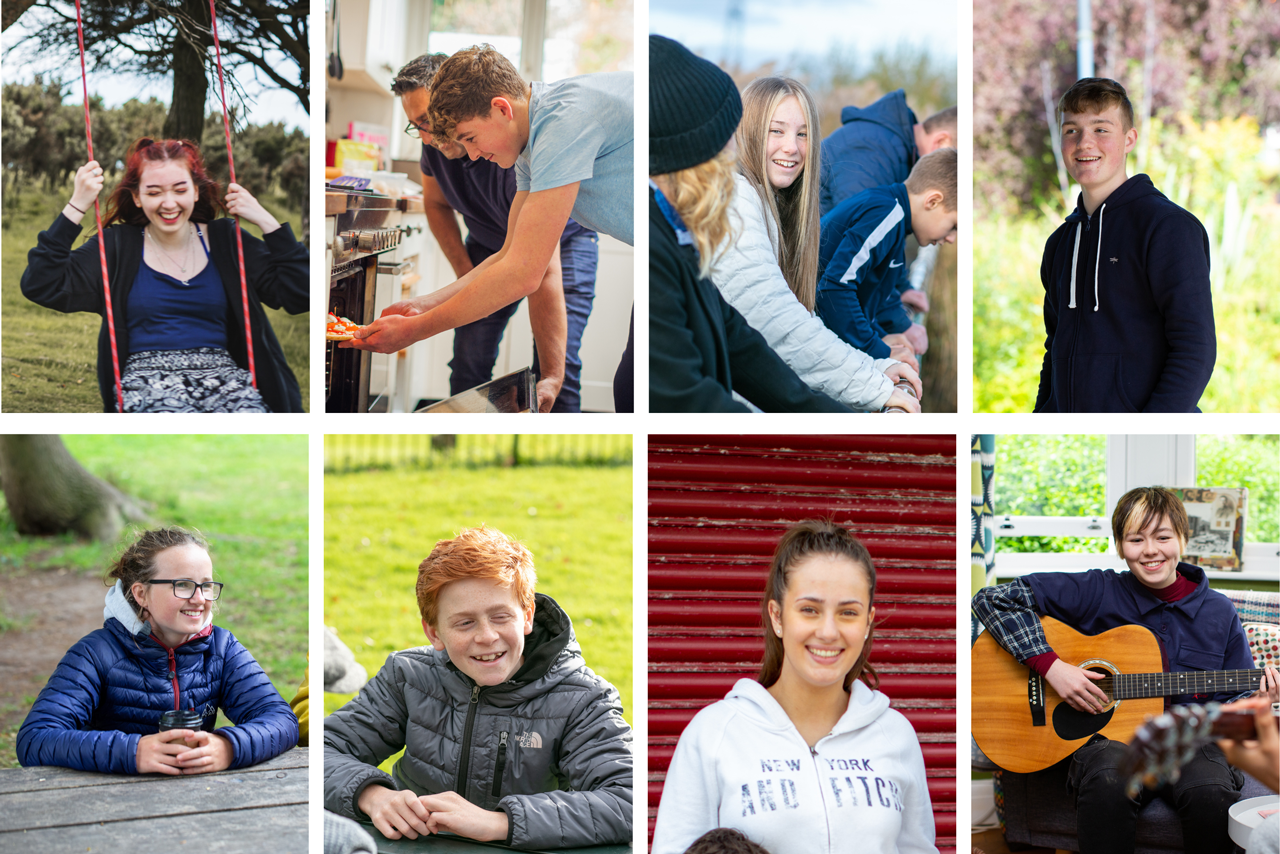
what are teens in care really like?
If you’re thinking about becoming a foster carer – unless you work in schools or have personal experience of care yourself – you might not meet a child in care until they arrive on your doorstep.
This might be a whole new world for you.
And you might be worried about “getting it wrong”.
We asked someone who has spent a lot of time with teens in care for their advice to new foster carers.
amy tells us her experience of working with young people in care
I’ve always worked with children. From meithrin to schools ; dealing with anti-bullying and low self esteem. In secondary schools I was always dealing with the more difficult behaviours and behaviour management.
I would see children coming through the care system, who couldn’t read or write.
Then I was a stay-at-home mum and then got a job in the Colliseum cinema – but that was boring. I missed working with children.
More recently I’ve been working in a residential children’s home as a keyworker. I’m there when they arrive and supporting them through everything, like a mam or dad would do.
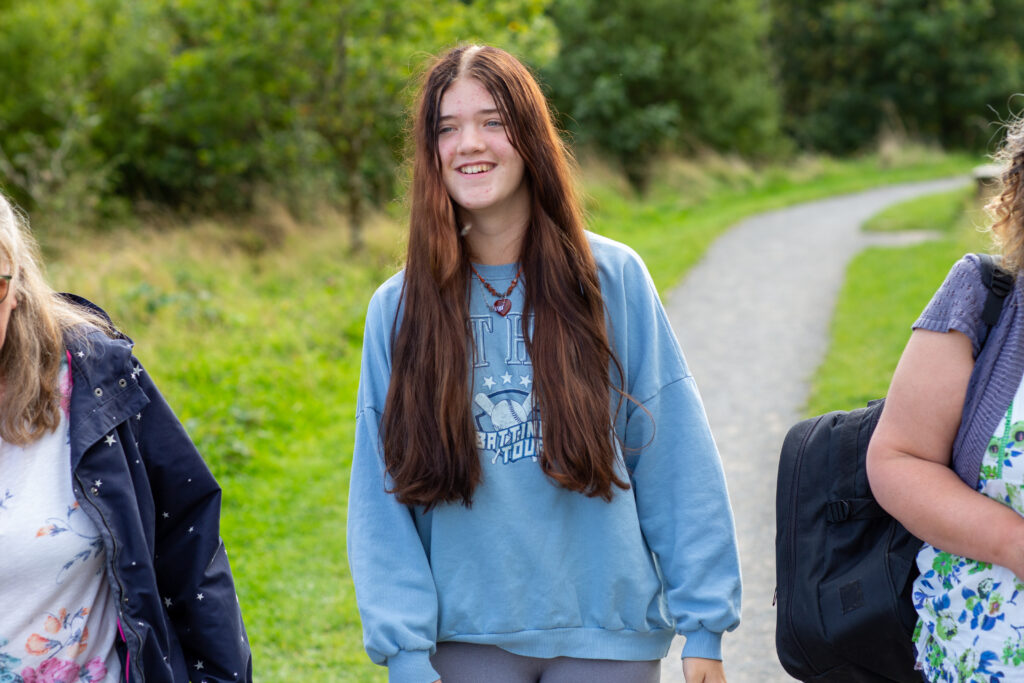
perception of teens
The perception of teens is troublesome. The public have a negative perception of young people in society in general. That they are rude, vandalise and ruin our communities.
And when you stick in the fact that a young person is looked-after, that just increases. They have no boundaries, no consequences, they are just going to be hooligans that will ruin things for other children.
I’m not saying every teen in care is perfect.
I’ve had one kid who was caught with a knife out in public and another who was always running away and I had to call the Police to report him missing. You can understand why the public can have this perception, because some are behaving in the way they’d predict.
But that’s not the case for all.
Many more of the children I’ve looked after have just been really scared.
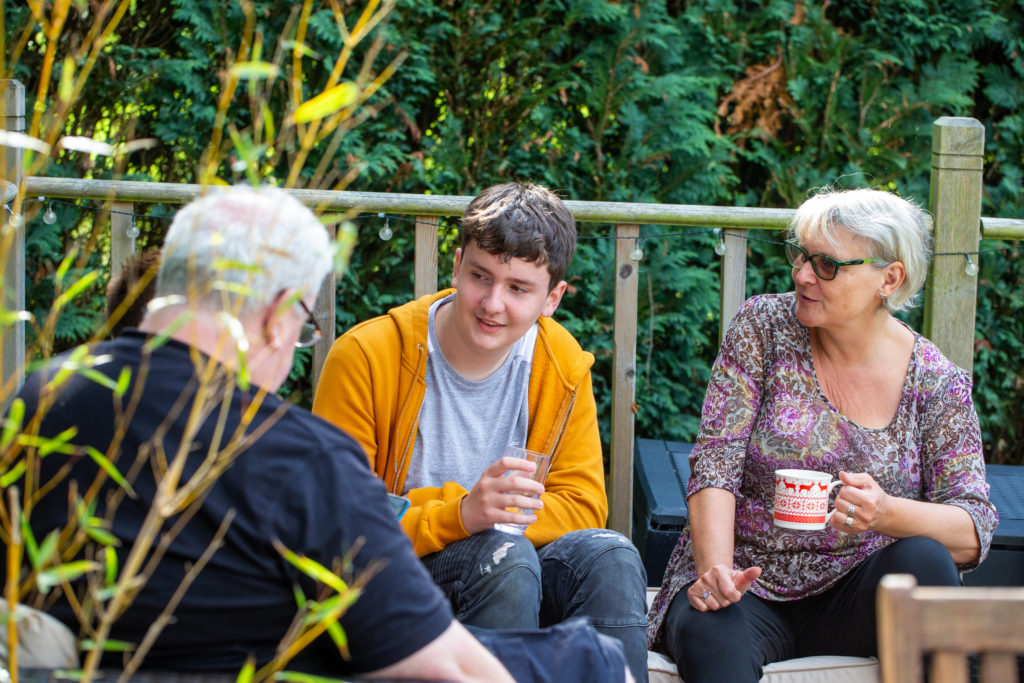
what are teens in care like when they first arrive?
They’ve had a long car journey. They’ve been sat in their social worker’s car, refusing point blank, not knowing what’s behind the door, not knowing anyone there or how long they are going to be there for.
They’ve arrived at a strange house, it’s daunting. They’ve been brought straight from school to strangers.
They are scared, what the heck is going on.
And there’s an expectation, when the social worker says “They’re great, they are lovely people and they are going to look after you” , that the child should believe you.
But their parents were supposed to love them and look after them – and yet they’ve still been through trauma and abuse.
That’s a massive expectation to put on a child, to believe that it’s going to be fine.
I cared for 3 siblings and when they first arrived, they had a bit of attitude saying “you can’t keep me locked in” but with some nurturing from staff, they understood what it was like to be looked after, in the right way. They felt the love and support from us. And then they didn’t want to go out the door.
The consequence of this though is their realisation that
“this is what I should have been experiencing from my own mother”
They feel confused about what they should have had, that other children had, but they never experienced.
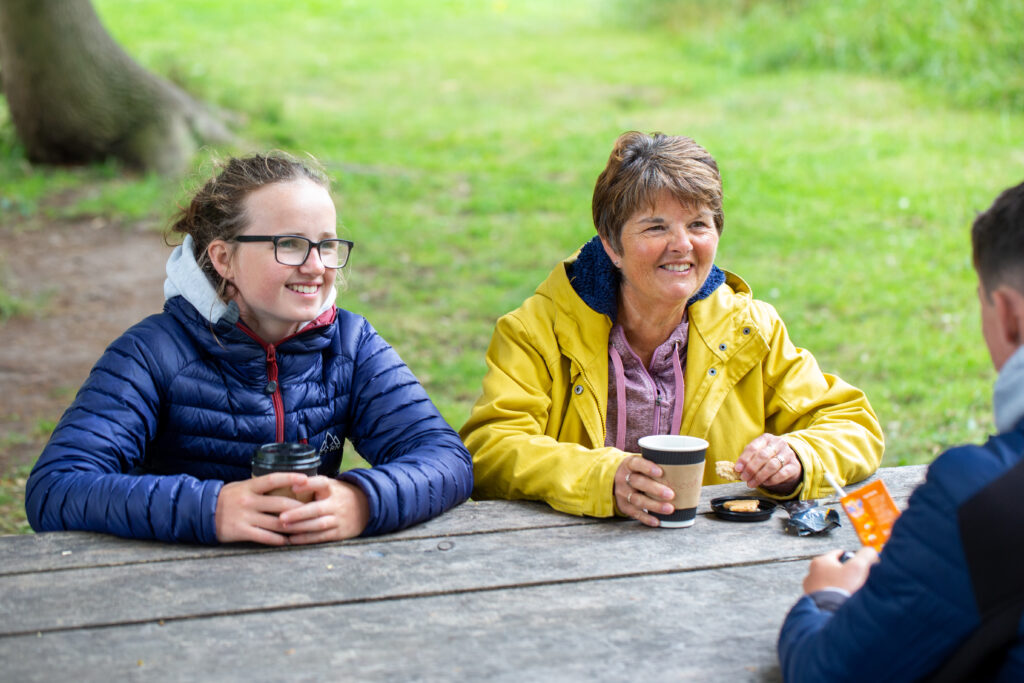
first lesson I learned
When I started working in residential, someone said to “just be mam to them”. All the things that you’d do for your own kids, do that for them.
Easy. After being a stay at home mam for 11 years, I could do that.
I took it literally.
I tried to treat them as my own, trying to be mam.
“No dessert unless you’ve eaten your veg.” I’d say.
But they were unable to process the word “no”.
They’d never had no.
Parents had let them do what they like, for an easy life.
One child I cared for, we just clashed.
I had to take a step back, this wasn’t working. I needed to try something else. I was willing to do anything to make them feel safe in their home.
So, rather than using the word “no” harshly, I started rewording it.
“Yes you can have that, but let’s do this first”
It was a massive learning curve.
You’ve got to remember that they are coming from a place of trauma. Just accept them, come alongside them, support them and help them navigate the ups and downs that life brings. And be consistent.
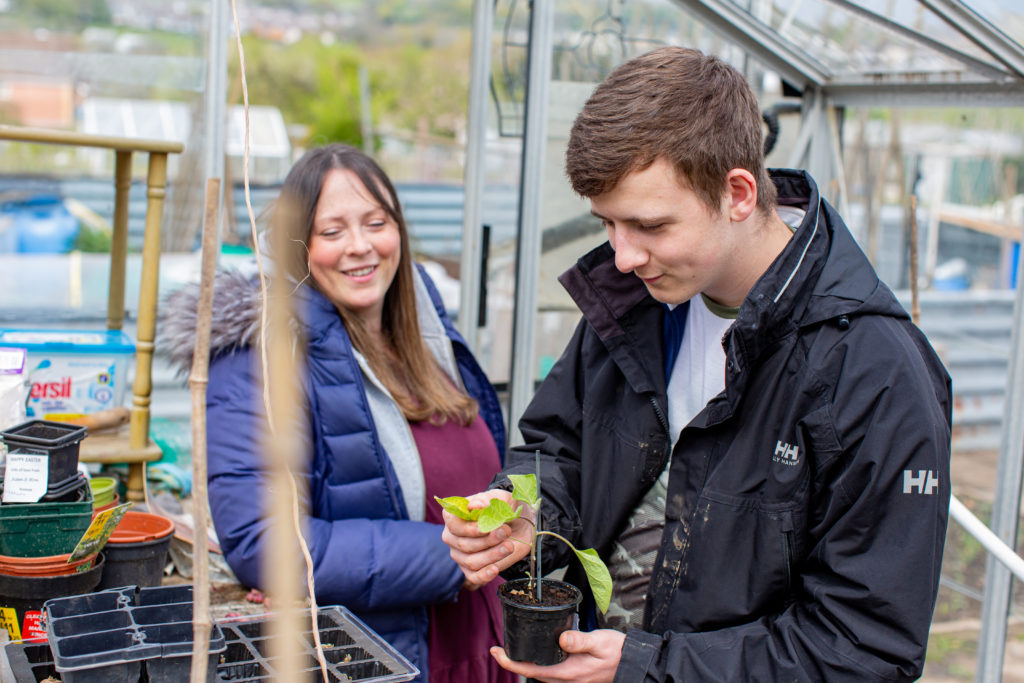
fearful of food
You want them to have a safe place where they don’t need to be fearful of where their food is coming from.
I had some children in the bins looking for scraps.
Even though there was a meal plan, we’d tell them what time we have snacks and they know where the food was stored. They would still gorge themselves on food, used to not knowing when the next meal was coming.
They would finish one pot noodle, and immediate start a second one.
Rather than say “no” to the second pot noodle, I would say let’s find something else that’s going to fill you up a bit more.
sensitive to words
Language is important, the children can be really sensitive to words. I would play words out in my head to make sure what I was saying wasn’t going to be taken the wrong way. It can be tiring, second guessing yourself. But once a relationship is built, it’s easier, they get to know your personality and your sense of humour.
firsts, at an older age
With Aberaeron only 20 mins away or Barry Island just a train ride away, the fact that some of our local young people had never been to the beach was incredible to me. Something we’ve totally taken for granted. And their little face, going to the beach for the first time, at 10 years old.
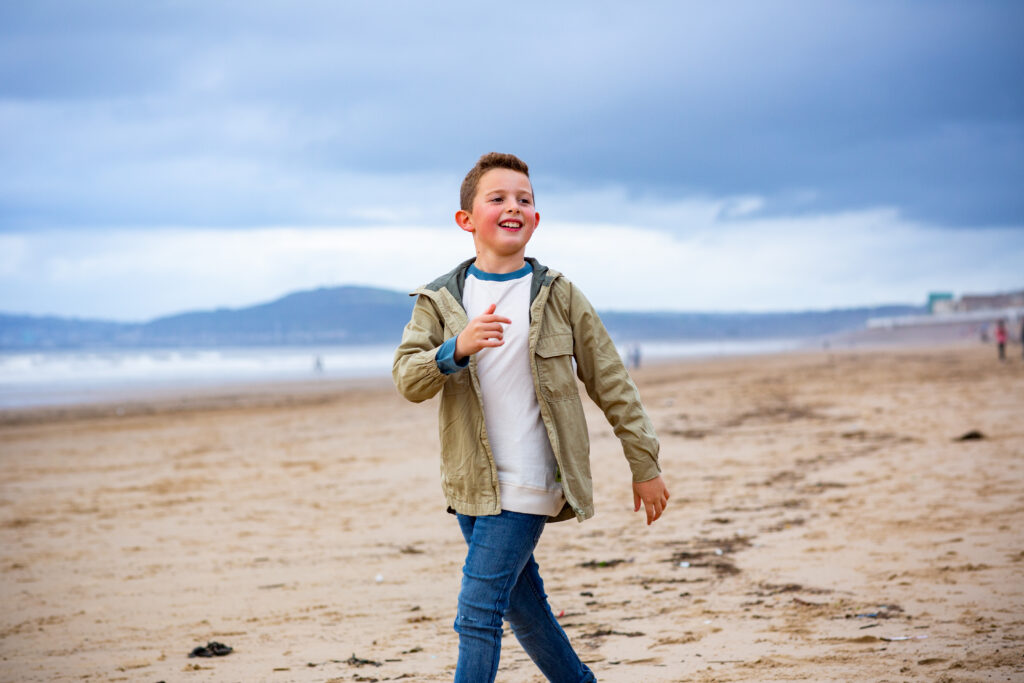
Another boy was invited to join in a game of football with some local boys, but he would just kick the ball against the wall. He didn’t know how to join in. He didn’t know how to play or share. They had to explain that you kick the ball to another person and you’d get it kicked back to you.
I watched one child try avocado for the first time. He wasn’t keen.
One lad, we discovered, didn’t know how to climb a wall. So we showed him. Although in years to come the social worker might not thank us for that. It wasn’t high, he wouldn’t hurt himself. We thought every kid should know how to climb a tree or a wall, because that’s normal.
Another boy was desperate for a scooter – all his friends in school had one. We put out a message asking if anyone had a scooter they could donate. We were inundated with offers. We even got a brand new one in a box. He was over the moon. But when he opened it, he would just push it, walking alongside it. “That’s good” we said. “but shall we show you how to put one foot on it and push along?”
He thought I was stupid.
Eventually he got it and loved it.
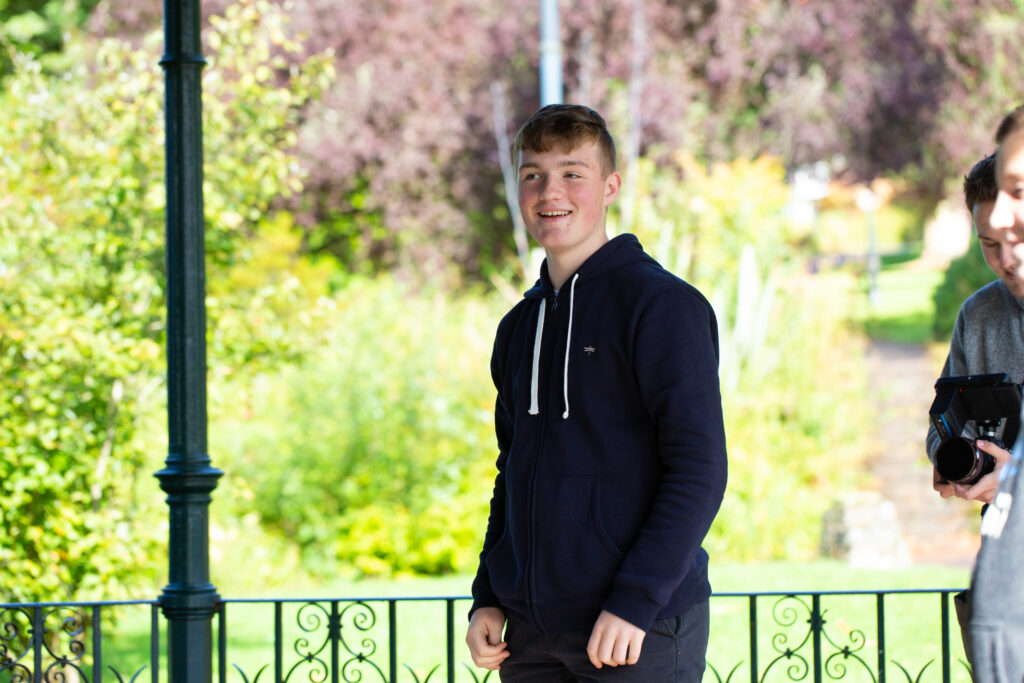
tips for handling the difficult questions
Don’t be afraid to ask the child what they want.
Even if you can’t give it to them or you don’t know the answer.
Ask them.
You can always say “We’re going to be having a chat with your social worker next week, you can ask them then, or if you don’t want to ask, maybe I can ask the question for you and let you know what they say.”
If they want to talk about mam or dad, that’s ok too.
Older children will usually know the reasons why they are in care, they are not stupid. But they still miss them.
You can offer to talk about it. Usually the answer is no, they don’t want to go back through it and relive it.
So what else can you do?
A memory box works well for those moments when they need that closeness. Something nice to look back on. A photograph. It’s really difficult when they’ve got nothing. We’ve even planted a tree, so if they want to feel a connection, they can sit by the tree and think about them.
I ask them about their funniest time they remember at home, there will be good segments of their life.
I like to give them a smile.
It can be difficult for them to find their own smile, so I try to create one with them, when they’ve got nothing.
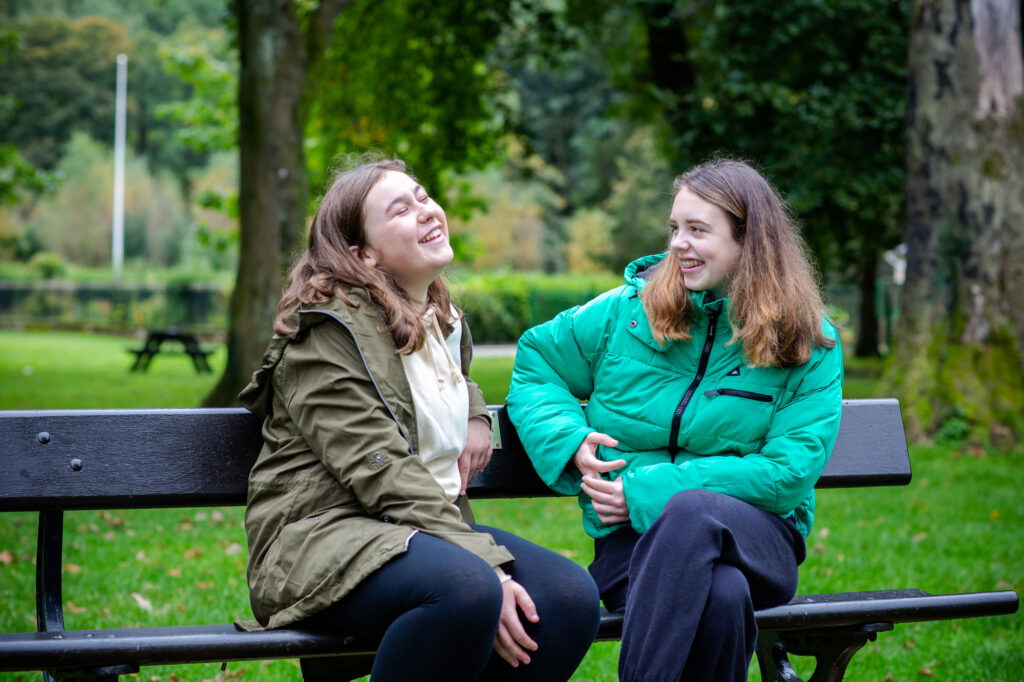
don’t take it personally
I would ask children what their favourite meals were. Then hopefully, they are eating foods you know they’ll like and make them feel welcome.
A boy asked for lasagne.
I cooked it for him. He looked at it and pushed it around the plate.
Where’s the peas he asked. Peas? In lasagne?
Do you want me to cook you some peas and put them on the side?
No my nan put peas in her lasagne.
Rather than say no that’s wrong, you don’t put peas in lasagne – it might sound silly but it’s important to them – it’s about valuing that and not dismissing it.
You don’t know the background story to that. It might be the only hot meal that child had in a very long time, and their nanna made it.
That meal doesn’t just mean being fed; it symbolises love, acceptance, affection and maybe their only good memory.
And if they don’t like your lasagne recipe, without peas, don’t take it personally.

what can you offer children and young people in care?
Perhaps reading Amy’s blog has made you realise just how much you can offer a young person. Simple things like showing them how to climb a wall or ride a scooter. Just sitting beside them on their difficult days, cooking their favourite meal or taking them to the beach.
Speak to your local fostering team about what you have to offer.
Read more blogs
Fostering as a single male carer
How fostering teenagers enriched our lives
